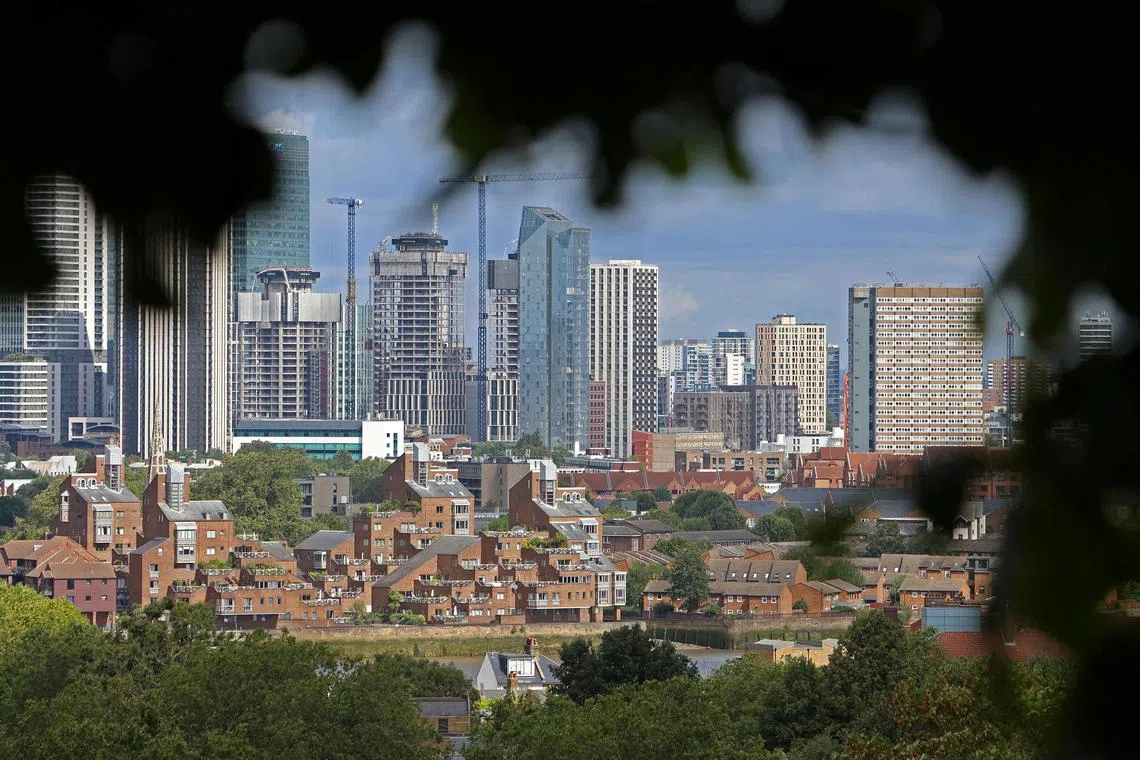First-time home buyers cannot afford to live in London anymore
Sign up now: Get ST's newsletters delivered to your inbox

Higher interest rates and inflation are now spreading London’s problem to the rest of Britain's property market.
PHOTO: REUTERS
Follow topic:
LONDON – First-time buyers have all but abandoned the London housing market over the last decade after a surge in mortgage rates and high deposit requirements priced more out of the market.
Mortgage lender Halifax said only 24,323 Londoners bought a house for the first time between January and August 2023, a 9 per cent drop from the same period in 2013.
The capital is the only region in Britain with fewer first-time buyers than a decade ago.
Elsewhere, cheap borrowing and government aid post Covid-19 have fuelled double-digit growth over the last 10 years.
Higher interest rates and inflation are now spreading London’s problem to the rest of Britain’s property market.
The number of first-time buyers across Britain fell 22 per cent from a year ago between January and August, according to Halifax.
This adds to evidence that the Bank of England’s interest rate increases are slowing down the housing market.
“The growth in house prices over the past decade means raising a suitable deposit remains a significant hurdle,” Halifax Mortgages director Kim Kinnaird said in a report on Wednesday. “There is then finding the right property in a housing market with limited supply, coupled with the sharp rise in interest rates, meaning there is lots to consider for any first-time buyer.”
A jump in inflation has delivered a swinging cost-of-living crisis that is only now starting to let up, and that also has cut deeply into household budgets and the ability to save for a deposit.
That is even though deposit requirements declined 12 per cent from 2022, and house prices edged lower in response to slower demand.
Halifax said average house prices have fallen 2 per cent to £288,030 (S$480,000) since 2022.
The south-east of England suffered the biggest decline in first-time buyers in 2023, followed by London and East Anglia.
These are also the places with the most expensive deposits.
Londoners purchasing their first homes have to come up with more than £113,000, while in the south-east that number exceeds £62,000.
Even so, there are signs of relief.
The decline in property prices, coupled with wage increases, has reduced the house price to income ratio, used by Halifax to measure affordability, to 5.1 from 5.8 in June 2022.
This means houses for first-time buyers are at their most affordable since June 2020.
First-time buyers also tend to be older than a decade ago, with the average age of those buying their first property increasing by two years to 32.
This reflects both the increase in costs and the fact that most buying their first home do so in joint names, according to Kinnaird. BLOOMBERG

